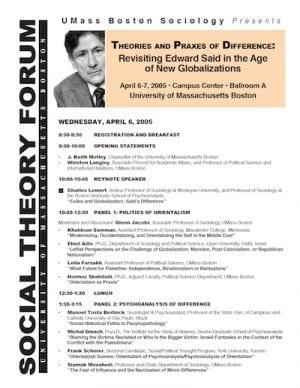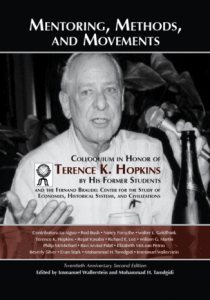Proceedings Journal Article — Discussant Commentary: Orientalism and the Poverty of Imagination — by Rajini Srikanth
$15.00
In this introductory remarks on a panel on “Orientalism and Mass Media,” I return to the theme of the poverty of imagination. The papers on this panel on “Orientalism and the Poverty of Imagination” defy Orientalist producers of mass culture and the productions that come from impoverished imaginings.
Description
Abstract
In this introductory remarks on a panel on “Orientalism and Mass Media,” I return to the theme of the poverty of imagination. The Orientalist mind, the imperialist impulse, can only exist when the Arab, African, or Asian is construed as a blank, a void, to be filled with images of the West’s fashioning. That the nations of the West moved beyond their geographical boundaries did not guarantee that they would also movebeyond the narrow boundaries of their imagination. The psychologists in the audience will probably attribute this reluctance to the Western valorizing of “a solid self,” a self that guards against infiltration by foreign elements. In contrast, an individual like Said spoke of the power ofthe shifting self, the special insights provided by the exile who lives a life of dissonance. The exile is blessed with an abundant and textured imagination. By contrast, the producers of mass culture flatten their imaginations in representing the African, Middle Eastern, and Asian. The papers on this panel defy Orientalist producers of mass culture and the productions that come from impoverished imaginings.
Recommended Citation
Srikanth, Rajini. 2005. “Discussant Commentary: Orientalism and the Poverty of Imagination.” Pp. 271-274 in Theories and Praxes of Difference: Revisiting Edward Said in the Age of New Globalizations: Proceedings of the Second Annual Social Theory Forum, April 6-7, 2005 (Discourse of Sociological Practice, Vol. 7, Issues 1&2, Fall/Spring 2005). Double-Issue Guest Editor: Mohammad H. Tamdgidi. Sociology Department, UMass Boston.
Read the Above Publication Online
To read the above publication online, you need to be logged in as an OKCIR Library member with a valid access. In that case just click on the large PDF icon below to access the publication. Make sure you refresh your browser page after logging in.






